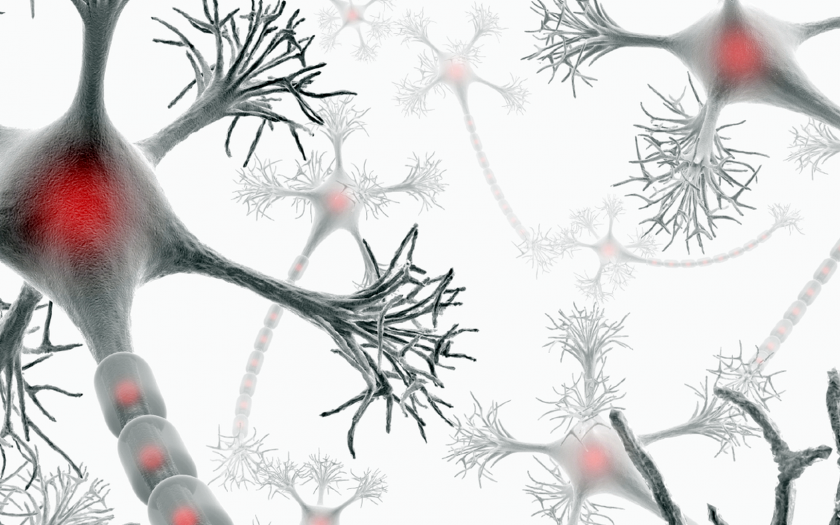In multiple sclerosis (MS) there are inflammatory processes of the white matter of the central nervous system, in which sclerotic plaques are formed at random sites. In this case, demyelination of the shell of the brain and spinal cord occurs. Myelin sheath provides the transmission of electrochemical signals between the central nervous system and the peripheral nervous system. If this layer is damaged, the signal transmission may be slow, distorted, or disappear altogether, causing deterioration or loss of a number of functions. In the name “scattered” – means the plurality of damaged areas of the central nervous system, and “sclerosis” – the nature of the damage (scarring).
The number of MS patients is estimated at several million around the world. In most cases, the disease occurs in the age from 20 to 40 years, but the diagnosis is established with great delay. This is due to the variability of the symptoms of MS and the lack of unique signs of multiple sclerosis. Women suffer from this disease almost twice as often as men.
Symptoms
Symptoms of multiple sclerosis may vary in degree of manifestation, may develop rapidly or develop slowly. Also, symptoms strongly depend on the site of the damage to the nervous system. Approximately 70% of patients, especially at an early age, experience full or partial remission (temporary weakening) of symptoms.
The course of the disease and the symptoms of multiple sclerosis
Typically, the first signs of the disease are blurred or split vision, distorted perception of green and red, or blindness of one eye. For unknown reasons, vision problems may appear in later stages of multiple sclerosis too. Such deviations refer to retrobulbar or optic neuritis. For 15% of patients, optic neuritis will be the first manifestation, at 55% it will occur later. Therefore, this symptom, especially with accompanying abnormalities in the cerebrospinal fluid, points to MS.
Almost half of the patients with MS feel cognitive impairment: loss of concentration, attention, memory, sensitivity. But these signs rarely strongly expressed and can be determined only by special tests. Patients may not notice any deterioration; it is often noticed by their relatives and friends. Cognitive impairments arise when the part of the brain responsible for processing information is damaged. The more complex the task or the action – the more strongly these deviations. It is still not fully established whether the MS can influence the perception and return of information by the brain, or only the mechanisms of its processing are violated. There is no direct link between memory loss and progression of multiple sclerosis.
Depression is another characteristic of MS. More than 10% of patients suffer from psihotytic diseases, such as bipolar affective disorder or paranoid schizophrenia. At 5% there are euphoric attacks due to the destruction of the myelin layer nerve fibers of the brain stem, which controls the emotional state of man.
For most patients with MS, the deleterious effect has a thermal effect. Conversely, the effect of cold helps mitigate symptoms. Therefore, most patients are helped by cold baths and swimming in the pool. It is the best option for physical exercises with multiple sclerosis.
Among the medicines used such drugs as Lioresal and Pacifen.

